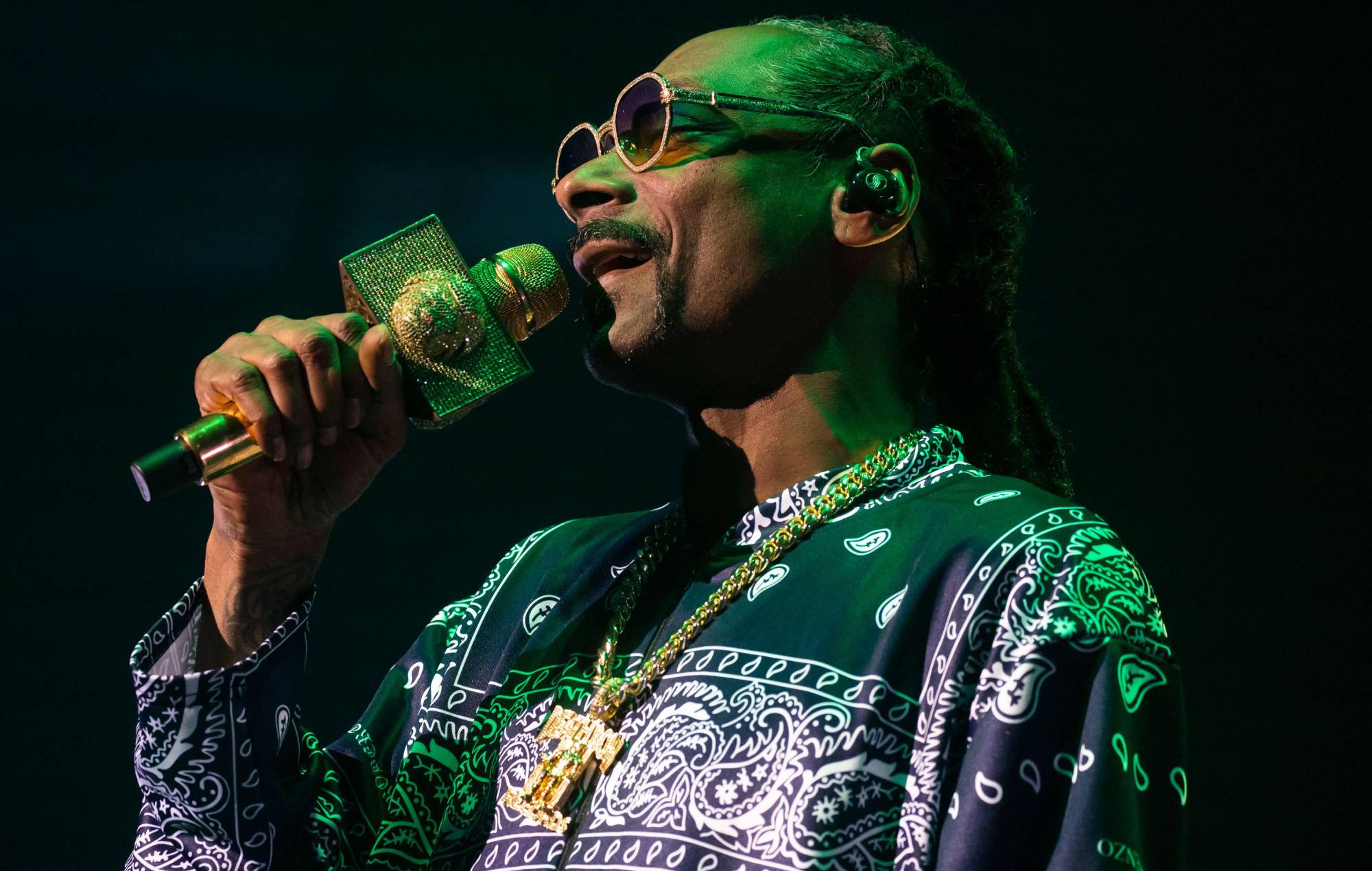Should artists support Snoop Dogg’s call for a musicians’ strike?
The rapper's praise for the Hollywood writers' walkout raises questions for his own industry
By Joe Goggins

On paper, inviting Snoop Dogg to address an economic think tank might not be all that much of a curveball. He is, after all, the very definition of a multi-hyphenate. His intelligently crafted stoner persona has opened up all manner of money-making avenues to him and the Doggfather has happily strolled down most of them – why wouldn’t the Milken Institute want to hear him share his capital-generating expertise?
Last week (May 4), though, Snoop went off-piste when a discussion with former Apple Music Creative Director Larry Jackson landed not on fast food advertising or non-fungible tokens but on the ‘Gin and Juice’ rapper’s bread-and-butter: the recording industry. As Jackson extolled the lucrative virtues of streaming services last week, though, Snoop cut across his with a stinging critique of the present royalty system.
“Streaming got to get their shit together, because I don’t understand how you get paid off of that shit,” he said. “Can someone explain to me how you can get a billion streams and not get a million dollars? That shit don’t make sense to me. I don’t know who the fuck running the streaming industry — if you’re in here or not — but you gotta give us some information on how the fuck to track this money down.”
He went on to express solidarity with the ongoing Writers Guild of America (WGA) strike, which began last Tuesday (May 2). The initial effect of his comments will have been to make Jackson shift uncomfortably in his seat, but the parallel drawn with the writers’ walkout might yet have wider repercussions.
After all, the chief point of contention for the WGA is over residuals from streaming services, with the WGA’s assertion being that the disparity between their own share and that of the Alliance of Motion Picture and Television Producers (AMPTP) is such that writers’ income is dramatically diminished relative to a decade ago, before streaming platforms had become the industry’s foundation.
The same is something that has been writ large in the music industry for longer than that; globally, record sales have been in decline since 1999, and whilst streaming subscription figures evidence a continuing willingness by consumers to spend money on music, most of the current pie is plated up by labels and the streamers themselves. Regardless of the outcome of the present standoff in Hollywood, musicians are likely currently casting an enviable eye towards the solidarity and resolve being shown by the WGA, and wondering what direct action they could take themselves.
After all, the situations are similar; as Snoop points out, millions of streams are not translating to millions of dollars, meaning that there is a whole generation of artists with the kind of listenership that would have left them comfortably off two or more decades ago now living hand to mouth or working day jobs alongside their musical careers. The concept of a musicians’ strike is hardly without precedent; the American Federation of Musicians (AFM) refused to work for commercial recording companies between 1942 and 1944 in a dispute over royalties, in what remains the longest-running strike in entertainment history.
The echoes of the conditions that laid the ground for that downing of tools can be seen today; it was new technologies, namely the advent of radio and the commercial sale of vinyl records, that was bringing in handsome profits for the few companies that controlled those channels. That was the state of play by the late thirties, and by the early forties, thousands of musicians had come together to demand a greater share of the rich that technological advance was generating.
Whilst the AFM remains active, a streaming age stand-off has yet to materialise. Whilst it is conceivable that artists could choose to pull their music from streaming services in protest at low royalty rates – Neil Young and Joni Mitchell proved it possible when they boycotted Spotify overhear the spreading of COVID-19 misinformation on Joe Rogan’s podcast – many less commercially popular artists either do not have the same agency, are wary of falling out of favour with labels, or simply are keenly aware that, in an ever-more-saturated market, to remove your music from the easiest places to find it is to position yourself out of sight and out of mind of your audience.
There are already signs of potential change from within, as Tom Gray, founder of the #BrokenRecord campaign that demands fairer remuneration for artists, points out in this Twitter thread; major labels are already seemingly waking up to the potential benefits of a user-centric model, which would see a user’s subscription fee evenly divided by the artists that they listen to in a given month. Labels and streamers, though, are never going to switch models unless they can be sure they’d continue to enjoy, and expand, the kind of monopoly over profits they have presently.
This is why change, instead, may well have to be driven by artists, as it was in 1944, and as the WGA hope it will be again in their own industry today. What is clear is that time is of the essence. Speaking to The Guardian in April 2021, Imogen Heap, a singer-songwriter whose own craft has very much existed at the intersection of music and technology for some time, urged artists to get ahead of the curve in terms of new technologies, “instead of firefighting new mediums and trying to crowbar ourselves an income from them. It might be streaming now, but in a few years’ time it will be something else.”
Recent strides in the development of music generation by artificial intelligence means Heap has already been proven right. Whatever the challenges they may face in mounting industrial action, musicians should heed Snoop Dogg’s comments as less a lament and more a call to arms.
